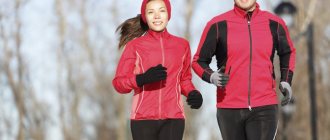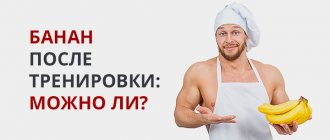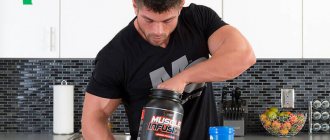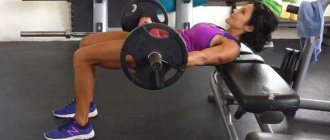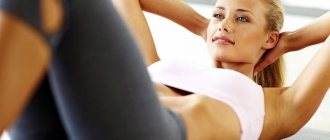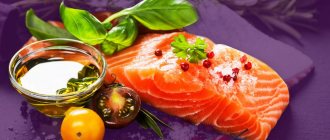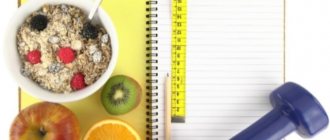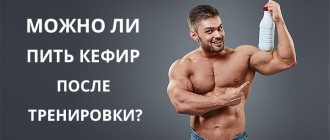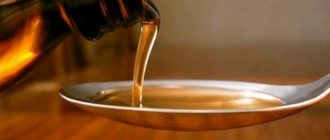Foods, drinks and dishes that can be consumed before training
We have already figured out what you need to eat before training, now let’s talk about what you can eat before training.
Meals before training should contain proteins and carbohydrates to saturate the body, eliminate hunger and energize you for fruitful exercise.
It’s good to add cereals to your diet:
- rice;
- buckwheat;
- oatmeal.
Dietary (lean) meat, good for:
- chicken (breast);
- turkey.
Other useful foods that should be included in your diet include:
- Fruits (apple, banana), fruit salad from any fresh fruit dressed with yogurt.
- Muesli.
- Mix of nuts and dried fruits.
- Smoothie (vegetables, fruits).
- Omelette with vegetables.
- Turkey cabbage rolls.
- Cottage cheese with the addition of fruits or berries.
- Homemade protein bars.
- Low-fat yogurt.
- Protein shakes.
- Almond butter with celery.
- Sweet potatoes and broccoli + lean meats.
- Fish and vegetables.
- Whole grain breads.
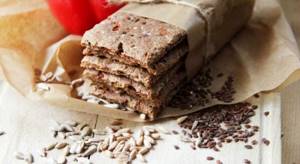
You can drink coffee without adding milk or cream, green tea, sweet black tea immediately before training.
A selection of healthy products will allow everyone to choose what they like.
What to eat
As I already said - proteins and carbohydrates, but not just any, but fast ones. Yes, yes, they can also be slow, for example, pasta. Did not know? I was shocked when I found out.
So, fast proteins include proteins of all types, except casein, as well as a boiled egg (can be steamed - from the word steam) - they are most quickly absorbed, nuts or, as a last resort, boiled chicken meat (but lean and not much) .
Fast carbohydrates include anything that contains sugar - mass gainer or cakes, cookies (it would be great with nuts), but, again, in small quantities, if you don’t want to grow a belly.
There is also, so to speak, a budget option: half a liter of low-fat kefir and a couple of bananas. But everything that was just described applies to only 30–40 minutes after training. That is, that very “window”.
And here are the foods that you need to eat an hour after training: this can be a side dish (preferably porridge) with boiled or cooked lean meat in a slow cooker. In general, pasta takes up a significant share of the diet of bodybuilders (slow carbohydrates), so you can make something for yourself from it.
And all this is good, but you shouldn’t forget about vitamins and minerals either, so vegetable salads will help you. For desserts, you can make yourself pancakes with apples, lightly sweetened cottage cheese, eat ice cream or drink a not very sweet compote.
How to eat before training
Different foods need to be eaten at different times before you start exercising. It is advisable to eat bulk foods such as meat, side dishes, and bread an hour or two before you start exercising.
This is important so that the stomach has time to digest food. And dense foods, such as porridge, cottage cheese, vegetables or fruits, can be eaten half an hour to an hour before the start of training
This will save you from feeling hungry during the process.
It is not recommended to eat immediately before training. Since the digestion process will greatly interfere with physical activity.
You can drink it at any time, since the liquid practically does not interfere with the fat burning process, on the contrary, it helps it.
Useful tips
As already noted, to get really good results, you should avoid eating within the first 2 hours after training. Unfortunately, it is during this period that many people experience a strong feeling of hunger, which is associated with significant energy losses. The following tricks will help you cope with severe hunger:
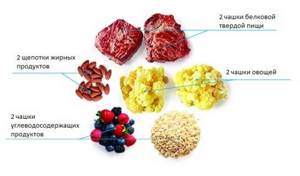
- You can drink plenty of liquid. It can be not only water, but also tea or cocoa. An important condition for this is the absence of sugar.
- Consumption of low-fat kefir. You can drink kefir during the first two hours after training if the feeling of hunger is very difficult to cope with. In this case, it is extremely important that the fat content of the product does not exceed 1%, and the amount consumed is no more than 500 ml.
- Eating one large green apple will help you cope with hunger perfectly.
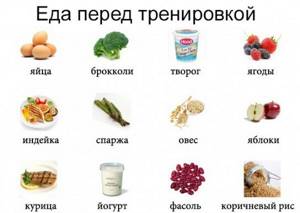
Many people exercise in the evening. It should be remembered that in this case the “six o’clock in the evening” rule does not apply, because the muscles need restoration, and the body needs to replenish energy reserves. In this case, you should not starve yourself, and you can use any of the dietary products listed above to create your diet.
Healthy and unhealthy foods are two sides of the same coin
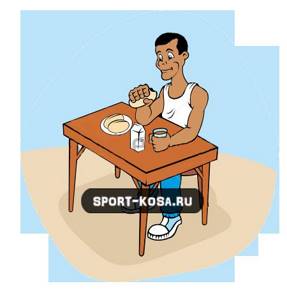
Those who have been following my blog for a long time know that I am a supporter of healthy and separate nutrition, but being an objective person, I want to tell you about all aspects of pre-workout nutrition without missing out on the positive effects of foods that are considered unhealthy. I will give an example of the famous American powerlifter CT Fletcher, who for a long time was at the top of world fame. In his interviews, he has repeatedly stated that he has never used anabolic steroids, although they were repeatedly offered to him. Another thing is that he constantly lived in fast foods such as McDonald's, and could eat four Big Macs with fries at a time, drink a couple of liters of cola and snack on pie. CT “Plush Beard” admitted that he loved to eat a lot and really felt that he was getting stronger every day and this is no wonder, because one such meal is two or even three daily calorie intake for an ordinary person, which is in a compartment with brutal work in the gym it gave amazing results. True, in the end this bearded monster underwent very serious heart surgery and still blames his diet for this. Don't believe me? Watch a few of his workouts with our domestic fitness specialist Denis Semenikhin, I highly recommend it for general development.
But why am I saying this? It's simple. Sometimes the goal justifies the means to achieve it, but when the price is the risk of premature death, then it makes sense to think several times before embarking on this path.
A little physiology
During exercise, muscles begin to break down immediately after lifting the first weight. This process is called catabolism. It continues throughout the entire training session. It's quite hard to believe, but research shows that catabolism is even greater after exercise than during exercise. Therefore, if you don't start eating immediately after finishing strength training, it will have a negative impact on your results. Perhaps you exercise in the morning in a fasted state in order to burn more fat. So, studies show that catabolism after “hungry” training is much more pronounced. This means that you are burning fat, but at the same time you are burning muscle mass.
Muscle breakdown is a natural response to training load. And that's actually not a bad thing. But in terms of gaining muscle mass, it can be a major obstacle when muscle breakdown outpaces muscle recovery. This can also happen when you are in a state of overtraining. However, what can happen more often is that you simply don't eat enough to stop muscle breakdown. There are two possible options:
- Recovery slower than breakdown = weight and muscle loss.
- Regenerative capacity faster than breakdown = muscle tissue growth.
The body's ability to repair muscle tissue after exercise can only be improved through post-workout nutrition. Some people sometimes blame bad genetics when their problem is a poorly planned post-workout diet. Let's talk about this.
Post-workout nutrition
What to eat after training? Within half an hour after training, it is necessary to close the protein-carbohydrate window, during which the body experiences a strong need for nutrients. If you replenish your body with proteins and carbohydrates at this moment, this will help the body support your muscles.
You need to close the anabolic window 30 minutes after exercise. It is recommended to do this with a protein-carbohydrate combination at the rate of 60 to 40. On the day of aerobic exercise, give 60% to carbohydrates, 40% to proteins. On days of strength and aerobic strength training, on the contrary, 60% are proteins and 40% are carbohydrates. Examples of post-workout nutrition:
- Protein shake with low-fat milk
- Low-fat cottage cheese with fruits
- Omelette or eggs with bread
- Lean chicken sandwiches
If you want to lose weight, then the calorie content of the dish should be about half as much as you spent in class. For example, while exercising, you burned 500 kcal. This means that within half an hour after it ends, eat a protein-carbohydrate dish with an energy value of 250 kcal. Protein and carbohydrates should be a 60/40 mix depending on the type of workout you are doing. A full meal should be 1.5-2 hours after this intermediate meal after training.
If you train in the morning on an empty stomach or after a small snack, then after training it is quite acceptable to have a full breakfast 30-45 minutes later. But this option is not suitable for those who are working on muscle growth; in this case, it is better to stick to the standard option described above.
What should you not eat after a workout?
First, avoid fatty foods (including full-fat milk and fatty cottage cheese). Fat prevents the absorption of nutrients into the blood, so it is advisable to eat only low-fat foods after exercise. Secondly, after training, you should not consume products containing caffeine, which interferes with the use of protein for muscle recovery.
By following these simple pre- and post-workout nutrition tips, you'll improve your performance and take another step toward achieving the body of your dreams. However, remember that the issue of nutrition before and after training is not the main one for those who want to lose weight and tone their body
The most important thing is to eat throughout the day, maintain a general calorie deficit, and consume enough proteins, carbohydrates and fats. Therefore, you can always adjust the menu to suit your individual capabilities.
Share on social networks:
Is it possible to eat after training?
The answer to the question of whether you need to eat after training is yes, this is an essential component of a proper sports regime. How many hours later can you eat after training? The figure depends on the type of load - cardio or strength, and the desired result - weight loss or weight gain. The need to eat after exercise is evidenced by the following facts:
- Scientists have proven that in the first 1-2 hours after physical activity, eating is not just necessary, but extremely necessary. During this period, the body opens protein and carbohydrate windows - a lack of energy and substances for the reconstruction of fibers. Nutrition is the only source of essential elements for the body and health. If you do not provide amino acids and glucose during this period, then the desired result from the workout will not be achieved.
- At the end of the lesson, the athlete is weakened and exhausted. It is necessary to replenish energy and water.
Pre-workout nutrition
So, first, let's look at what to eat before training. This will largely depend on when you practice.
If you exercise in the morning on an empty stomach
Exercising in the morning on an empty stomach is one of the most popular ways to additionally burn fat, although trainers around the world are still arguing about the effectiveness of this method of losing weight. Adherents of the theory of training on an empty stomach claim that at this time glycogen reserves in the liver are minimal, which means your body will draw energy from your fat and accordingly “destroy” it. Opponents of this theory say that training time does not affect the reduction of body fat, but you can easily burn muscles with morning exercises, which will accordingly distance you from a beautiful, toned body.
Of course, the option of training on an empty stomach is only suitable for those who exercise at home or who have a gym near their home. Because keeping your body hungry for several hours (during and before training) is still not very healthy. But if you still choose to exercise in the morning before breakfast, then you don’t need to eat anything before training, although you should definitely drink water.
In what cases is it not recommended to train on an empty stomach:
- If you do strength training for muscle growth
- If you do high-intensity training (Tabata, CrossFit)
- If you have difficulty exercising on an empty stomach, feel dizzy and weak
If you exercise in the morning after a snack
What pre-workout nutrition should you choose if you can’t exercise on an empty stomach? For example, in the case of intense training or due to lack of physical strength to exercise without food. In this case, give yourself a light carbohydrate snack 30-45 minutes before your workout. This could be coffee with a banana, bread with a piece of cheese, or muesli bars (this should be a small portion of food, about 100 g). In this case, you will have energy and strength to study. You can even drink a glass of kefir or milk if that's enough for you to study.
Please note that this does not have to be a large, full breakfast. The snack should be small, otherwise it will simply be difficult for you to study
In addition, intense workouts on a full stomach can cause indigestion or even vomiting. If you prefer a full breakfast and only then exercise, then in this case it is better to give preference to cereals and exercise at least 1.5 hours after eating.
Whether you exercise in the morning after breakfast, in the afternoon or in the evening
In other cases, complex carbohydrates are considered the optimal pre-workout diet. 1.5-2 hours before class, eat buckwheat, rice, durum wheat pasta or oatmeal if you exercise after breakfast. If you can’t eat before training, then again the carbohydrate snack mentioned in the previous paragraph will save you. But it is advisable to plan your day so that before class you have a full meal with complex carbohydrates.
Another tip for pre-workout nutrition: don’t eat purely protein foods before exercise. This will not give you energy and you will not be able to exercise to your full potential.
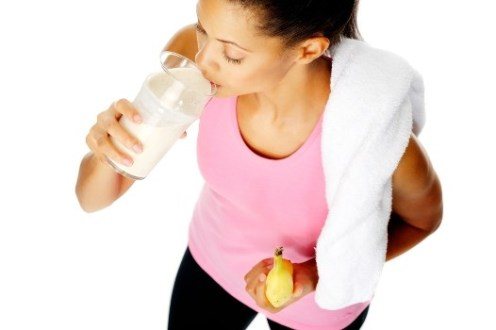
Carbohydrates after exercise
This has previously been the subject of lengthy debate. Is protein enough or does it need to be combined with carbohydrates? Yes, protein after exercise increases protein synthesis. But for maximum results, carbohydrates are also important. There are two reasons for this: glycogen and insulin . Anaerobic exercise such as weight lifting, as well as intense forms of cardio such as HIIT, burn large amounts of glycogen.
And what's the problem? Very low glycogen levels significantly accelerate the process of muscle breakdown (catabolism). In other words, if there is virtually no glycogen left in the body, it becomes much more difficult to stop the breakdown of muscle tissue, no matter how much protein you consume. The fastest way to restore muscle glycogen is to consume carbohydrates. Fast carbohydrates (high glycemic index) such as white rice are a very good source of glucose. And glucose is the body’s most preferred source of energy after intense exercise. Therefore, eating “fast” carbohydrates is the easiest way to restore glycogen and stimulate muscle growth. Another reason to include carbohydrates in the diet after intense exercise is that they cause a large release of insulin. Insulin suppresses the breakdown of muscle fibers (catabolism) and also delivers nutrients (proteins, carbohydrates and fats) to the body's cells. In other words, it is a very important substance in stopping the breakdown of muscle tissue. Protein food itself raises insulin levels. However, when combined with carbohydrates, it causes a rise and keeps the level elevated much longer. The more intense the training, the more important this is.
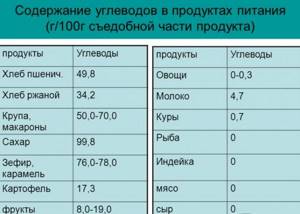
Let's summarize. A typical strength training session should last 45-60 minutes. As a result, glycogen stores will sharply decrease. After finishing the exercise, it is recommended to eat the largest amount of carbohydrates per day (and this will not cause fat deposition in the body). For example, one of the best options: 60-100 grams of white rice as a source of “fast” carbohydrates.
Other carbohydrate foods:
- buckwheat (porridge);
- oatmeal (porridge);
- millet groats (porridge);
- durum wheat pasta;
- fresh juice (watermelon, pomegranate, etc.).
After intense exercise, 1 gram of carbohydrates per 1 kilogram of body weight is recommended.
Therefore, how much carbohydrates to eat depends on your weight and intensity of exercise.
Proteins, fats and carbohydrates before training
For an effective workout, it is important to remember that the body must receive sufficient amounts of carbohydrates and proteins. It is advisable to exclude fats altogether
Carbohydrates
Before training, it is important to consume quite a lot of carbohydrates. They are needed for proper functioning of muscles and brain.
During physical activity, glycogen is burned extremely quickly, so it is important that the pre-workout meal consists of approximately 60% carbohydrate foods.
Squirrels. During training, proteins are a source of amino acids for muscle function. It is worth noting that immediately after exercise, protein synthesis increases sharply, and therefore the need for protein foods
Therefore, it is important to have food containing protein both before and after training.
Fats. Fatty foods significantly slow down the work of the stomach, as well as the speed of digestion. Thus, active consumption of fats before training can cause nausea and heaviness in the stomach. Therefore, you should avoid consuming fats before training.
Protein after workout
Everyone who trains hard, but cannot boast of special results, has one thing in common: a lack of understanding of the role of protein. After physical activity, it is needed in order to reduce catabolism. And here a number of problems may arise:
- Some people are afraid to eat too much protein.
- The idea that protein is important is advertising and marketing.
- Vegetarians do not eat meat at all.
When the results are much worse than expected, the most likely reason for this is a lack of protein in the diet. One study was published in the American Journal of Physiology. Participants did heavy leg training and were then given either a solution of essential amino acids, a solution of non-essential and non-essential amino acids, or a placebo (a solution containing nothing beneficial). There were no results in the placebo group. The remaining two showed the same, significant increase in muscle mass. The researchers concluded that it is the intake of essential amino acids that stimulates protein synthesis in muscles. And its consumption accelerates sharply in the post-training period.
So how much protein do you need in your post-workout diet? Most studies show that consuming 20 grams of protein post-workout accelerates the synthesis of protein molecules in muscles. A smaller amount does not have the same effect. This is a good starting point.
It is logical to assume that with more intense training loads a larger amount will be needed.
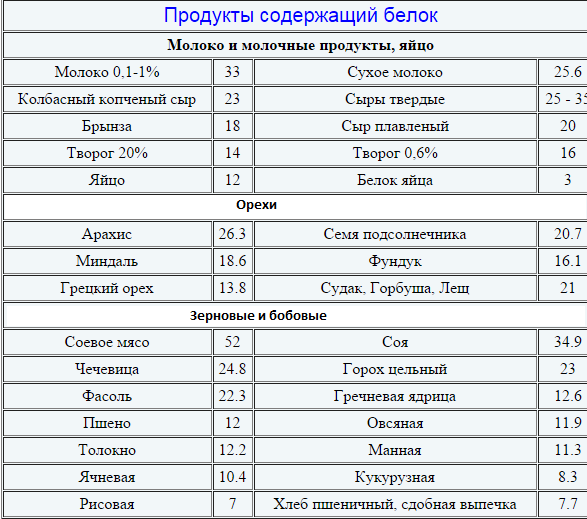
This was confirmed by a study published in the Journal of the American College of Nutrition. In addition, they found that the age and weight of the athlete also play a role. And this is quite reasonable, because it cannot be that a 60 kg girl and a 100 kg man need the same amount of protein in their post-workout nutrition. In some situations, big guys may need up to 40-50 grams of protein after particularly intense exercise. It can be consumed as whey protein or as traditional cooked chicken breast.
What other possible protein nutrition options are:
- lean meat;
- egg white (in the form of an omelet or boiled);
- protein cocktail;
- turkey fillet;
- Fish and seafood;
- dairy products and low-fat cottage cheese.
Nuances of nutrition
For people who are just starting to exercise and have not yet developed their own eating regimen and have not figured out how much time they need after eating before starting exercise to feel comfortable exercising, the following will be useful:
- The last meal before training should be 1-2 before it, but if the body does not have time to digest food before the start of training, increase the interval to 3-4 hours;
- a meal containing 500-600 calories is recommended 3 hours before training;
- Light snacks containing up to 300 calories can be made an hour before the appointed time.
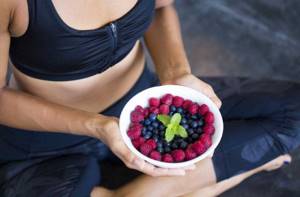
The period of time that must pass after eating before starting classes is individual for each person. Someone can eat a hearty meal and be productive in an hour, but for others, even 3-4 hours will not be enough for the body to cope with the amount of food received. In this case, experiment with products, their quantity and time.
Note! Before strength training, it is recommended to consume more protein, but if you are planning a long workout, increase the amount of carbohydrates at your last meal.
Post-workout nutrition: which foods to choose?
When planning a post-workout diet, it is better to give preference to low-calorie foods, such as:

- Low-fat cottage cheese, egg whites, boiled chicken breast, boiled squid meat, boiled white fish steaks.
- Salad with fresh vegetables . To season such dishes, you can use olive oil in an amount of no more than 2 tablespoons, as well as salt and pepper. As for the ingredients, there are no set rules regarding the preparation of vegetable salads, and you can focus on personal preferences. You can create a fairly healthy and low-calorie salad from tomatoes, cucumbers, cabbage, bell peppers, radishes, onions, lettuce and herbs.
- Low-fat kefir , provided that the person does not have individual intolerance to dairy products. According to leading nutritionists, drinking kefir immediately before bed helps to more quickly obtain impressive results in the fight for ideal weight.
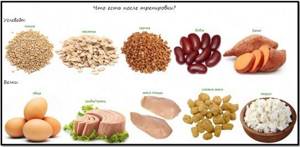
It should be noted that the category of dietary products that are allowed to be consumed after workouts does not include sweet fruits, bottled juices, curds, yoghurts with various additional ingredients used to create a pleasant taste.
What not to eat and drink before training
Before starting sports, it is not recommended to add some foods to your diet, such as:
- Hummus, legumes, greens and lettuce (these foods are low in calories and can cause bloating, which will not contribute to productivity).
- Avocado. This is undoubtedly a useful product, but not before a workout. Since it contains fatty acids that take a long time to be absorbed by the body.
- Fried and fatty foods. The body will spend all its energy to digest the food and there will be no left for exercise.
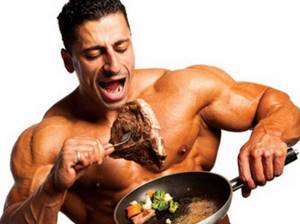
Before visiting the gym, you should not drink liquids that contribute to dehydration:
- milk;
- carbonated drinks;
- store-bought juices and nectars;
- sweetened sports drinks;
- alcohol.
It is also not recommended to drink energy drinks; of course, they will add energy in a short period of time, but after the end of the action (2-3 hours), you will feel weaker than you were before drinking them.
To summarize, you need to eat before playing sports. This helps add energy for the most effective workouts. Of course, you shouldn’t abuse food either; moderation is important in everything.

The foods included in the diet are no less important. These should be healthy foods containing large amounts of proteins and carbohydrates. Before training, you should not eat cakes, chocolates, fried or fatty foods. Drink sweet and carbonated drinks.
Also, don’t overeat before your workout. A full stomach will not promote activity, it will reduce it. When going to workout, you should feel comfortable, not hungry or overeated.
Find a middle ground where you feel comfortable and stick to it.
Is there a post-workout protein-carbohydrate window?
When it comes to post-workout nutrition, everyone remembers the “protein-carbohydrate window.” Some experts say that there is 30 minutes after finishing a workout in order to maximize muscle fiber synthesis. Others say 60 minutes. Overall the idea is quite simple. This is a short “window” of time when you can actively influence the effect of your workout using nutrition. Does it exist? Most people tend to think that there is no difference. The main thing is to start eating within 60-90 minutes after training. If this “window” exists, it means we are using it effectively – closing it. And if it’s not there, we eat protein foods and carbohydrates to stop catabolism and stimulate muscle growth. We win in both situations. But if you do not eat enough food during this period of time, then there is a risk that all your efforts will go in vain. And now about the “protein-carbohydrate window”. Many do not believe in it and claim that there is no difference when to consume protein and carbohydrates. All that matters is the total amount of essential nutrients for the entire day. But there are many studies that prove that athletes who consumed protein-carbohydrate foods within half an hour after training achieved better results.
